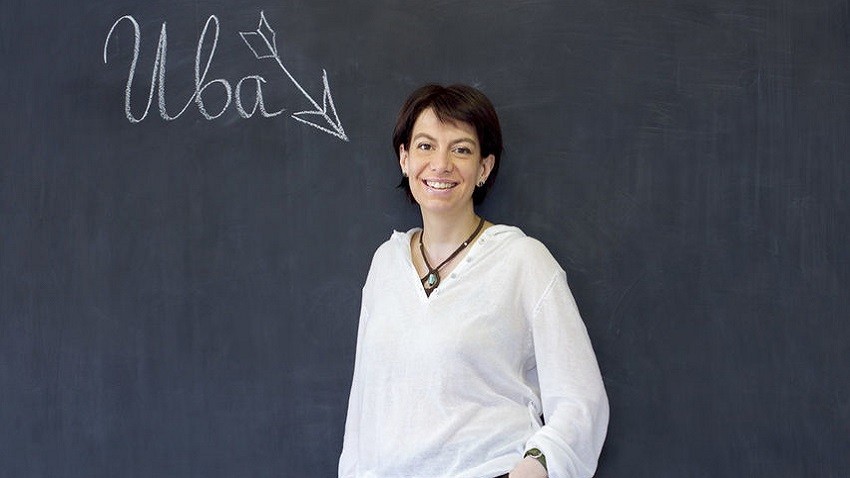Often around education-related dates, such as September 15 (the start of the school year in Bulgaria) and May 24 (the national Day of Education, Literacy and Culture), we take stock that we owe a lot to our teachers and what we have learned over the years at school. Unfortunately, many children in Bulgaria do not have a chance to get to school, and others drop out of the educational process too early. The reasons that take children away from the education system are usually poverty, misunderstanding and illiteracy in the family.
The number of children who do not go to school because they have been left in the care of a relative while their parents are abroad is also growing. These children are called the "new orphans" and also need support. But in school, the teaching staff is often insufficient in number in order to deal with both the teaching process and also the social problems of children. Institutions that are called upon to help a child in need do not always work in cooperation. Children do not receive the necessary protection, but the door to a better future is opened to them by concerned people from non-governmental organizations.
Among them, the active ones with ideas on how to keep the interest of many children in school are the volunteers in the Association for Shared Learning ELA. Its director Iva Boneva has been working for 20 years in support of children from different settlements, ethnic groups, children with disabilities, and more recently with those whose parents are far away:

"A lot has changed for the better over the years. We used to have a lot of kids in auxiliary schools before, and their place wasn't there. But things are not what I would like them to be. Child protection has been talked about frequently, and inclusive education is now compulsory by law, although many teachers are still unprepared for this. It is sad when in our meetings we often hear children say that there is no future for them. And many of them do not even know what professions exist and are completely unfocused on what they would like to do as adults. They do not know people who are actually engaged in any activity in their community. This lack of experience and information practically closes all doors to the child. Therefore, we want to show them that there are different specialists, with skills, professions, that the world is colourful and everyone can learn and do something that they will love and are interested in. For many children, this is a novelty, a real discovery about life”.
During their travels around the country, the volunteers of the ELA Association for Shared Learning found that there is a big gap between the schools in the small towns and villages, which are the majority, and the so-called “elite” educational centres. It turns out that in many places the educational function is in the background, and in the first place is the social one. "The children there have a lot of problems - family, household, and teachers do everything in their power to keep them in school," says Iva Boneva:
"One of the things the crisis has taught us is to be less biased and more interested in the world of others. It has taught us patience. Now we are working to make a Children's Green Education Centre. We have a building, it is from an old school, not far from Sofia. It will be a base for green camps, workshops, meetings and trainings. Otherwise, we have held many summer children's camps, but everywhere the resorts and hotels are not suitable for children and have nothing to do with environmental education. After a camp with children from very poor families this summer, there were children leaving their hometown for the first time. Some saw apartment blocks for the first time, others realized for the first time that there could be breakfast, lunch and dinner every day. This fascinates them. Some children heard for the first time that there was a sea, that there were children from other places who wanted to communicate with them. All this must be learned in school, because it broadens a child’s horizons and gives a person hope for development and future”.
English Rositsa Petkova
Methodological assistance, teacher training, meetings and educational programs in Bulgarian language and culture for students – these are just some of the ways in which the academic community of Veliko Tarnovo University "St. Cyril and Methodius" reaches..
The Botanical Garden's Tropical Greenhouse will be open to visitors from 16 to 26 January, every day from 10 am to 4 pm. More than 30 varieties of azaleas, some of which once adorned the Royal Palace, will be in bloom. Blueberries, rhododendrons, ericas..
Novo Oryahovo is a village in north-eastern Bulgaria. It is located in a picturesque corner in the municipality of Dolni Chiflik - 2 km from the Black Sea and the nature reserve along the Kamchia River. Due to its important..
From the first attempts to fly with homemade wings back in the 19th century, to the world's first combat flights with reconnaissance and bombing..
Dear friends, we are happy to announce that the Bulgarian National Radio’s QSL cards for 2025 are now available. The two series – one with 6 postcards..
Babinden, or Midwives' Day, was once again this year celebrated across the country with songs, dances and ritual re-enactments. The day of midwifery was..

+359 2 9336 661
